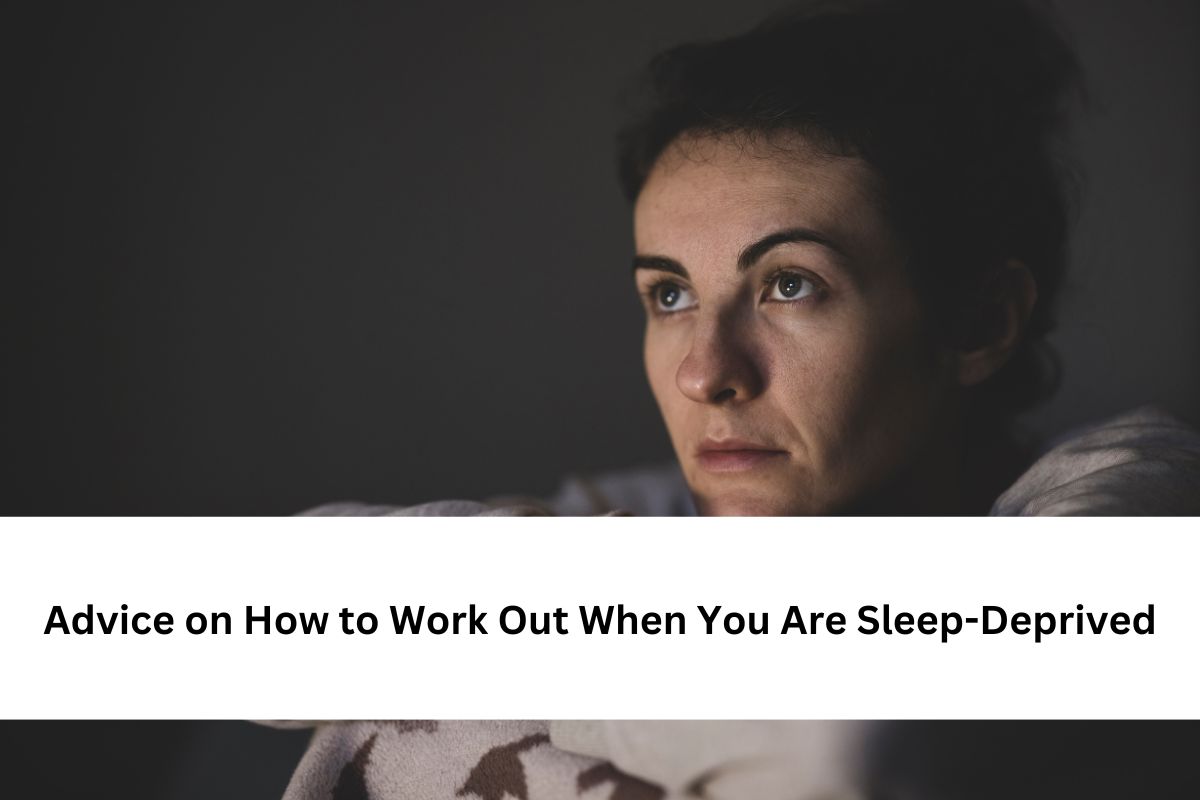We’ve all been there: the alarm goes off in the morning after a fitful night’s sleep, and the last thing you feel like doing is going to the gym. We’ve all been there because we’ve all been there. Even while having enough sleep is essential to maintaining general health and high levels of energy, there are occasions when physical activity must continue even if you haven’t had enough to sleep. When you haven’t had a lot of sleep, it can be difficult to exercise in a way that is both safe and productive. In this piece, we’ll discuss several recommendations and tactics that might assist Sleep Deprived.
10 ways to Work Out When You Are Sleep Deprived
- Prioritize Safety:Always putting safety first is the right thing to do. It is OK to forgo your workout for the day if you have not gotten nearly enough sleep and are experiencing excessive levels of weariness. Accidents and injuries are possible outcomes that might result from pushing oneself too hard when one is already weary.
- Hydrate and Fuel Up:Because a lack of sleep might cause you to feel lethargic, it is crucial to maintain proper hydration and provide your body with the required food. Before you begin your workout, ensure that you consume lots of water and choose a breakfast or snack that is both well-balanced and contains carbs and protein. Doing so will both provide you energy and increase your performance.
- Adjust Intensity:On days when you feel particularly exhausted, you might want to think about reducing the strenuousness of your workout. Choose a workout with a moderate intensity, such as brisk walking, swimming, or yoga, rather than high-intensity interval training (HIIT) or lifting heavy weights. These activities will provide better results. These pursuits are less likely to cause you to get too exhausted.
- Shorten Your Workout:If you often work out for extended periods of time, you might want to try cutting your workouts shorter on nights when you don’t get enough sleep. A exercise that lasts between 20 and 30 minutes can still bring advantages and assist you in maintaining consistency even if it depletes your energy.
- Listen to Your Body:During your workout, you should pay special attention to how your body is feeling overall. If you start to feel unusually uncomfortable, dizzy, or sick, you should stop what you’re doing immediately. It is essential to stay in tune with the messages your body is sending you and to accept the boundaries it sets.
- Focus on Form:As a result of having lower levels of energy, it is more crucial than ever to keep the correct form when performing exercises. Because improper form increases the risk of injury, it is important to focus on performing each action correctly.
- Include a Warm-Up and Cool-Down:Never skip your warm-up and cool-down routines. Warming up gradually increases your heart rate and prepares your muscles for exercise. Cooling down helps reduce muscle soreness and promotes recovery.
- Get Some Fresh Air:Try to complete your workout outside if at all feasible. Your mood and level of alertness may both benefit from being exposed to natural light and fresh air, making it much simpler for you to maintain your motivation while you are working out.
- Nap Strategically:If your schedule allows, consider taking a short power nap before your workout. A 20-30 minute nap can provide a quick energy boost and improve your exercise performance.
- Stay Consistent:Although you may find yourself sleep-deprived on occasion, you shouldn’t make it a routine. The key to successfully accomplishing your fitness objectives is to maintain a consistent training regimen. If you want to enhance your health in general, you should make getting enough sleep a priority and work on improving your sleeping habits.
Conclusion:
When you’re sleep deprived, it might be difficult to exercise, but it’s not impossible to do so. Even on days when you haven’t had enough sleep, you can still keep a regular exercise regimen as long as you put safety first, modify the intensity as needed, and pay attention to what your body tells you. Keep in mind that sleep is an essential component of overall health, and because of this, you should make it a top priority to enhance your sleeping patterns over the long term. This will ensure that you are well-rested and prepared to tackle your exercises with vigor and enthusiasm.
FAQ’s
FAQ 1: Q: Is it okay to exercise when I haven’t had enough sleep the previous night?
A: Exercising when you’re sleep deprived is generally safe, but it’s essential to prioritize safety and listen to your body. If you’re extremely fatigued or feeling unwell, it’s okay to skip your workout for that day. On days when you’re sleep deprived, consider lower-intensity exercises and be mindful of proper form to avoid injuries.
FAQ 2: Q: Can exercising when sleep deprived help improve my energy levels?
A: Yes, moderate-intensity exercise can boost your energy levels, especially when you’re feeling tired. Exercise increases blood flow and releases endorphins, which can enhance your mood and provide a temporary energy boost. However, it’s not a substitute for adequate sleep, so it’s essential to prioritize good sleep habits for long-term energy and overall health.






